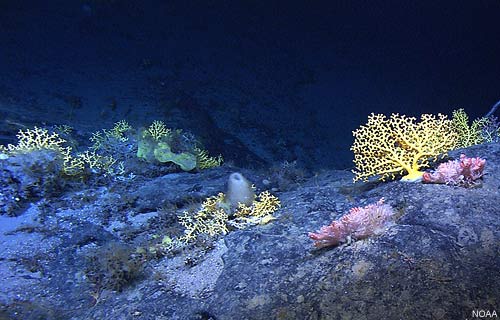Ocean Life in the Balance: Will Science Overcome Politics at Rio+20 Conference?
With the knowledge we now possess about modern society's impact on the ocean, there is no excuse for inaction. Susan Lieberman, director of International Policy
The United Nations has sought to promote the "peaceful use of the seas and ocean, the equitable utilization of their resources, and the study, protection, and preservation of the marine environment," for decades. The world, however, still has a long way to go in living up to these grand ideals. Today, there is renewed hope that the promise of stronger international stewardship of our ocean will be translated into action. It's been a long time coming.
The Rio Legacy
In the summer of 1992, governments met in Rio de Janeiro at the UN Conference on Environment and Development to discuss some of the globe's most pressing conservation problems. Known as the "Earth Summit," the talks brought together 108 heads of State and representatives from 172 countries, attracted headlines around the world, and resulted in several subsequent agreements. Unfortunately, the ocean was only an afterthought in these discussions. I had just started working on international wildlife policy for the U.S. government the previous year, and I don't recall any discussions on the ocean or marine biodiversity.
This June, global political leaders will convene again in Rio, for the Earth Summit's 20th anniversary. The conference's overall objective is to explore the ongoing challenge of sustainably and equitably managing our planet's finite natural resources.
Delegates will also evaluate progress toward achieving sustainable development commitments from the previous meeting. Although the ocean received scant attention in 1992, concern from conservationists and countries around the globe has enabled its inclusion on the agenda for this year's Earth Summit.
A World of Difference
Our scientific understanding of how the planet works has clearly evolved in ways that could not have been imagined 20 years ago. Numerous studies have since been published cataloging the precarious state of ocean biodiversity across an array of scientific disciplines. Yet, marine conservation issues are still often either neglected or relegated to second-tier status by the international community.
The ocean, which covers 70 percent of the Earth's surface, is the largest reservoir of biodiversity in the world. It is under extreme pressure and is being degraded at an alarming rate. According to the UN's most recent "State of the World's Fisheries and Aquaculture" report, 85 percent of fish stocks are "fully exploited, overexploited, depleted, or recovering from depletion" -- the highest ever recorded.
Meanwhile, on the high seas -- waters beyond national jurisdiction -- no one is in charge. While there have been modest improvements in this area over the years, ocean resources are dramatically overexploited today. This includes unsustainable and destructive practices, such as bottom trawling and shark finning, which have been scientifically documented in numerous studies. Illegal fishing and an overall lack of governance and accountability further compound these problems.

Setting the Stage for Success
It is promising that the ocean has been selected as one of the seven priorities for the upcoming summit. Indeed, the draft negotiating text released in early January includes a number of positive marine proposals, which could lead to new international policies to protect severely depleted ocean life.
One of these proposals is to start the process to create an unprecedented, strong global commitment to safeguarding our world's ocean. This includes setting in motion negotiations for a new international agreement to protect and conserve biodiversity on the high seas. Steps at the Rio summit to enable the establishment of additional marine protected areas and reserves, and to ensure sustainable fisheries, would demonstrate the necessary political will to address current failings and better manage activities that adversely impact the ocean.
Science + Action = A Formula for Progress in Rio
Last October, the world's population reached 7 billion. It is predicted to reach 9 billion by 2050, and as humanity's numbers continue rising, our dependence on the ocean, both as a source of nourishment and commerce, will only increase.
There is currently a huge mismatch between political will, scientific information, and global conservation imperatives. The challenges are vast, but unlike previous generations, we have an advantage: We understand the consequences of our activities better and know what needs to happen.
With the knowledge we now possess about modern society's impact on the ocean, there is no excuse for inaction. Leaders this June in Rio can and must build upon advances in modern science to help end the ongoing mismanagement of the high seas.
The ecological health and economic productivity of the ocean is currently in decline, but this can be reversed. By acting now we can prevent the current "tragedy of the commons" though the intelligent and judicious use of science to help build political will. The conversations that did not happen two decades ago need to take place, and be turned into action -- the world does not have another 20 years to wait.






